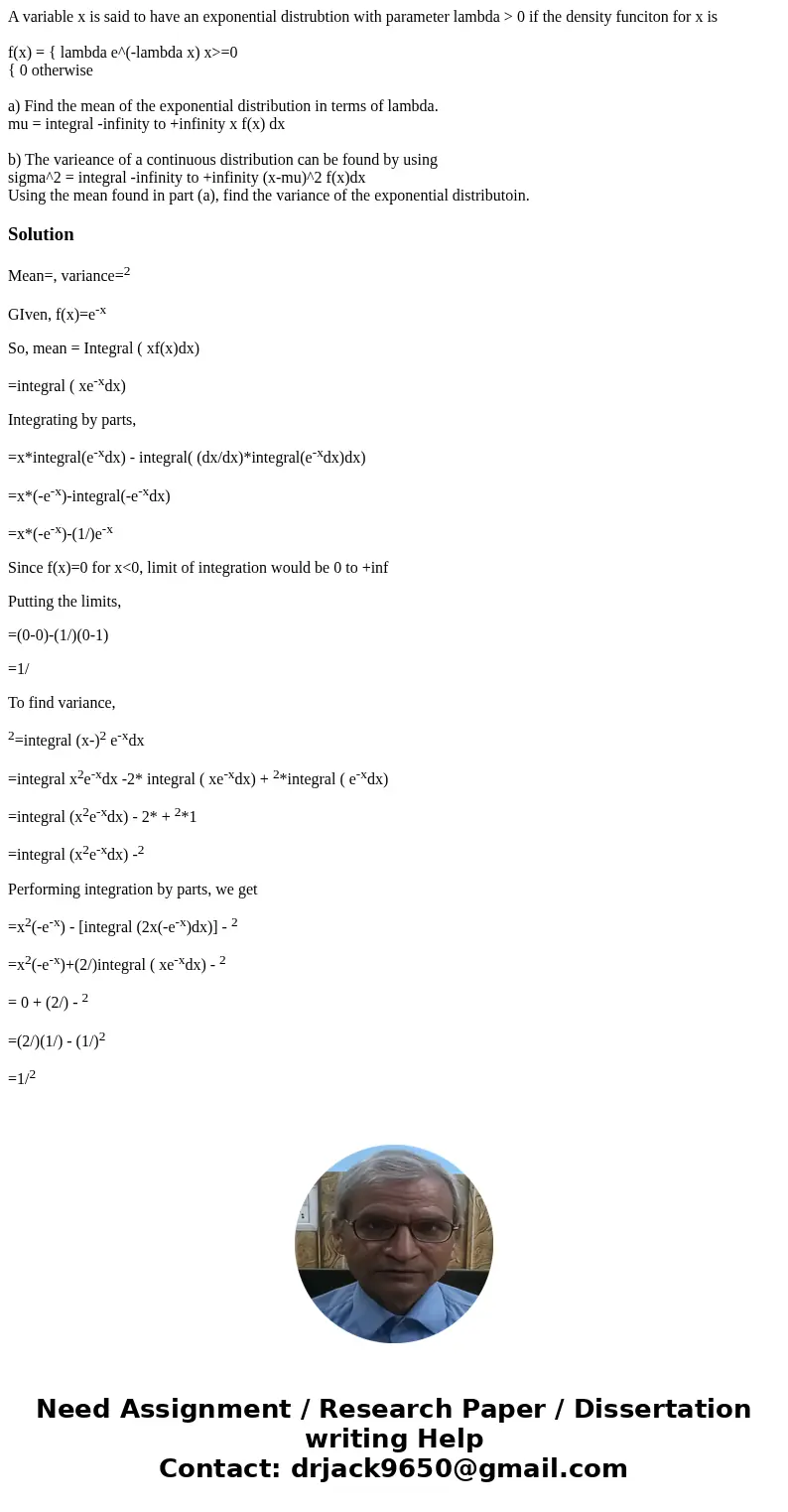A variable x is said to have an exponential distrubtion with
A variable x is said to have an exponential distrubtion with parameter lambda > 0 if the density funciton for x is
f(x) = { lambda e^(-lambda x) x>=0
{ 0 otherwise
a) Find the mean of the exponential distribution in terms of lambda.
mu = integral -infinity to +infinity x f(x) dx
b) The varieance of a continuous distribution can be found by using
sigma^2 = integral -infinity to +infinity (x-mu)^2 f(x)dx
Using the mean found in part (a), find the variance of the exponential distributoin.
f(x) = { lambda e^(-lambda x) x>=0
{ 0 otherwise
a) Find the mean of the exponential distribution in terms of lambda.
mu = integral -infinity to +infinity x f(x) dx
b) The varieance of a continuous distribution can be found by using
sigma^2 = integral -infinity to +infinity (x-mu)^2 f(x)dx
Using the mean found in part (a), find the variance of the exponential distributoin.
Solution
Mean=, variance=2
GIven, f(x)=e-x
So, mean = Integral ( xf(x)dx)
=integral ( xe-xdx)
Integrating by parts,
=x*integral(e-xdx) - integral( (dx/dx)*integral(e-xdx)dx)
=x*(-e-x)-integral(-e-xdx)
=x*(-e-x)-(1/)e-x
Since f(x)=0 for x<0, limit of integration would be 0 to +inf
Putting the limits,
=(0-0)-(1/)(0-1)
=1/
To find variance,
2=integral (x-)2 e-xdx
=integral x2e-xdx -2* integral ( xe-xdx) + 2*integral ( e-xdx)
=integral (x2e-xdx) - 2* + 2*1
=integral (x2e-xdx) -2
Performing integration by parts, we get
=x2(-e-x) - [integral (2x(-e-x)dx)] - 2
=x2(-e-x)+(2/)integral ( xe-xdx) - 2
= 0 + (2/) - 2
=(2/)(1/) - (1/)2
=1/2

 Homework Sourse
Homework Sourse